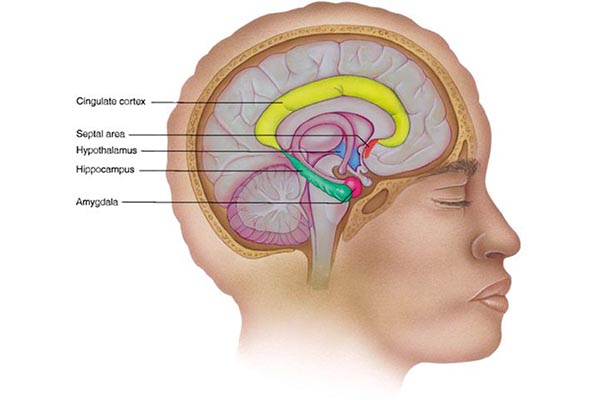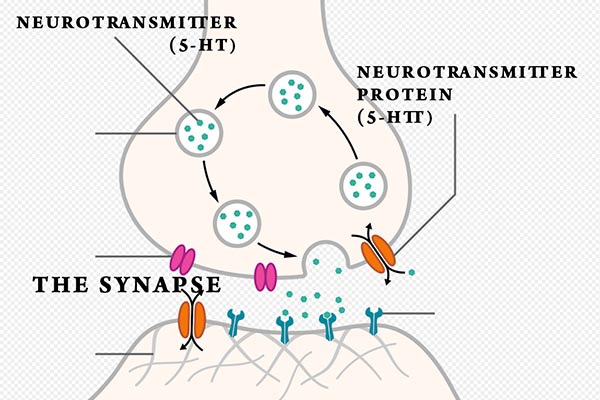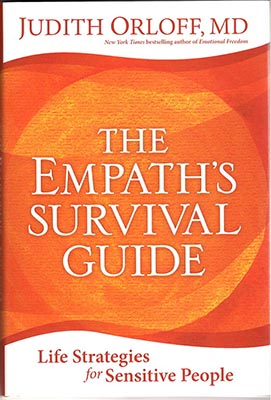The Myth of
“Personality Clash”

This is HR-speak for not knowing what to do about bullying or admitting that they lack the power to admonish or constrain managers above HR rank. It is the most frequent result of sham investigations of bullying, concluding that it is impossible to discern who is telling the truth in the “he said/she said” scenario. In fact, it is easy to separate fact from fiction. People don’t lie about feeling helpless, being overcome by anxiety, throwing up mornings on work days, sitting frozen in the car in the parking lot dreading the walk to your work station, and having your family torn apart by the misery you take home. Targets are truth tellers. Yet, it is they who are not believed!
The only “clash” of personalities is that targets want an end to the psychological violence and emotional abuse they face. They want a workplace that gives “psychological safety,” freedom from ridicule, intimidation and humiliation. They need all this. In contrast, and clashing with these needs, is an individual or group that believes they have the right to dominate and threaten a single, designated individual for their own (sadistic) enjoyment. And if they have the title of manager, they can expect to be (1) believed over the target’s portrayal of events, and (2) supported by the entire institution. There’s your clash: a lone peace-seeking person vs. perpetrators of violence backed by the institution.
Profile of Targets
From several online WBI surveys asking bullied targets why they were
targeted comes this rank-ordered list of characteristics:
Refuses to be subservient. Bullying is a bit like slavery. Perpetrators feel entitled to dominate others. Subordinated targets have few freedoms. Much of their worklife is controlled by their bullies. Denied autonomy shackles a person. When the slave challenges the master, reprisal is swift and severe. Targets who insist on their dignity are branded “uppity,” “provocative,” or “threatening.” And people like that “deserve” to be abused to be kept in their place.
Targets know details of the work better than their bullies. Targets are often the veteran, “go to” expert on staff on whom everyone relies for answers, solutions, and expertise. That’s why they are targeted. Not for weakness, but for their strength. The petty tyrants who bully prefer to bully those who make them look incompetent by comparison. Better to remove the standard than expose the shortcomings of the bully. Much of the bullying is driven by envy and jealousy on the part of bullies.
Beloved by coworkers, clients, customers, contacts in other agencies. Known for kindness and generosity.
Targets are decent people. They wrongly assume that everyone an ethical orientation. Clearly abusive people exploit and manipulate. This reality is unimaginable in targets’ worldview. Unless exposed to abuse previously in their lives, targets recognize bullying late and remain in denial until matters deteriorate. Traditional whistleblowers are also ethical and honest to an extreme extent. All targets are whistleblowers, if they ever report the incidents, in that they expose their employers’ dirty little secret.
This is noble. However, the contemporary American workplace that mirrors much of reality TV with its cutthroat relationships shown for our amusement, is a cesspool of political machinations by key players. Targets come to work to work and be with friends. Bullies come to screw with others’ lives and livelihoods. Bulliles play us for suckers when we turn our backs. That’s when they sink in the claws.
Note that the above 5 characteristics define an ideal employee, according to HR stated criteria. The person who is a “self-starter,” with a “short learning curve” and quick “mastery,” who possesses “emotional intelligence,” is “honest and ethical,” and a great “team player” is the one most likely to be targeted for abuse in the American workplace.
Targets’ Mantra
I just want to be left alone to do my job.
Your Empathy
Sympathy is the cognitive, intellectual awareness of the painful plight of another person. Add the emotional experience of sharing the emotional pain of that other person to define empathy. Only individuals with a high level of moral development are capable of empathy (Kohlberg’s theory). Adults who were deprived of nurturant, warm, loving parenting in early life, before the age of 3, have impaired brain growth in regions that make empathy possible.
From the 12,000 personal accounts shared with us by targets, we know targets have empathy. It’s frustrating to us that in the most desperate times, targets tell us they understand the pressures on their bully that may account for the abuse leveled against them! I want them to care as much for themselves as for others. But that’s who targets are — kind and nice.
Empaths:
- Intuitive skills — telepathy, premonitions, predictions about events, changes in weather
- Detect physical symptoms of others
- Energized by another person’s sense of well-being
- Absorb positive energies from social environment
- Few filters or boundaries to block external stimulation
- Emotional “sponge,” picking up sad emotions from others
- Extremely reactive neurological system (quick to “fight or flight”)
- Hypersensitive
Embitterment
German researcher LInden describes a strong reaction to adverse life events such as abuse at work. His term is post-traumatic embitterment disorder (PTED). He estimates that 35% of the population can recall an event that triggered the feelings, while about 2.5% experience PTED. The three components are:
- Feelings of injustice
- Deterioration of well-being (the Health Impact described in the Target Tutorial)
- Holding a grudge, desiring revenge or not being able to let go
The third part interferes with healing and precludes the generation of a post-bullying new life narrative.
About Emotional Reactivity
Science supports the reality that beautiful sensitive people are different from callous cruel people.


Genetics
On human chromosome 17, the gene SLC6A4 produces two phenotypes — short version of an allele and a long one. People with a preponderance of S alleles show more activity in the right amygdala (one of the emotion regulating areas of the midbrain) that accounts for feeling more fear than others. With the S allele, the amygdala itself is smaller with weaker connections between it and the cingulate cortex, impairing the ability to turn off fear. Perpetual fear helps explain continuous depression.
Neurotransmitters
Gene SLC6A4 is also involved in the production of the serotonin transporter protein (5-HTT). Serotonin (5-HT) is the neurotransmitter that helps regulate mood, sleep and other functions. 5-HTT terminates serotonin in the synapse between two neuronal cells through the process called reuptake. That means it reduces serotonin. Reuptake is associated with psychiatric disorders like depression. A major class of anti-depressant medications slow the reuptake, releasing more serotonin. Drugs like celexa, paxil, zoloft and prozac are Selective Serotonin Reuptake Inhibitors (SSRI).
Personality
During a target’s Acute Bullying Stage, they should not be tested using the MMPI (a personality battery that detects abnormality). The MMPI yields false diagnoses in a distressed person. Targets who file Workers Comp claims or file lawsuits are subjected to an “IME” (Independent Medical Exam) by a testing psychologist or psychiatrist who works mostly for employers and who nearly always discovers a mental illness that undermines the claim. Testing a person injured emotionally by emotional abuse at work and blaming it on some aspect of the target’s personality should be grounds for malpractice. At the least, it is unethical.
Bullying researchers have searched for personality traits which predict who is likely to become a target. The research is not conclusive. The only trait that might be a contender is the N scale in the NEO. The NEO, or Five-Factor Theory of Personality, is a contemporary measure of normal personality. The five domains are: Neuroticism (N), Extraversion (E), Openness (O), Agreeableness (A) and Conscientiousness (C). Neuroticism has two features: (1) people high in N react more intensely to distressing circumstances than normal, perceive situations as more threatening, and feel more hopelessly frustrated, and (2) they tend to experience anxiety, anger, depression, and a persistent bad mood. Bullied targets score higher on the N scale than non-bullied workers. But which came first — the bullying or neuroticism? Perhaps bullying makes one score high on the N scale. However, the genetics and neurotransmitter protein differences suggest emotional volatility might be a stable personality trait.
Predictable Stages of Targethood
1. Pre-Discovery. Review the Target Tutorial Recognizing What Happened. This phase could last for months. The danger is that your body’s stress response can be triggered before awareness. The longer it takes, the more likely you will get sick. See the Health Impact Target Tutorial. You may find yourself terminated before realizing what happened to you.
2. Acute Bullying Stage. After recognition, the crazy-making nature of bullying tends to be overwhelming. Bullying doesn’t make sense. The entire experience is irrational driven by people acting like work never mattered. Why does she say I’m incompetent when it isn’t true? This is the Big Lie. You do not yet realize it, but you are being attacked. Bullying is psychological assault. The following list is only a partial set of possibilities that may come your way.
3. False Respite. Just as a battered spouse gets the occasional flowers and chocolates, quieter times when the bully ignores you, you might think it is has ended. Not so. The misery comes roaring back at a most unpredictable time. It’s a game of control The bully sadistically chooses when and when not to torment you. Living in constant anticipation of attacks is exhausting and traumatizing. Use the quiet times to actively take steps to get free that we suggest in Target Tutorial Action Steps.
4. Periods of Elation. These are genuine high points and to be enjoyed as long as possible before reality crashes down.
5. Post-Bullying Stage. If you engaged in any complaint-investigation-adjudication process to resolve your bullying, allow yourself at least one year after the cessation of all activities related to getting justice. You require emotional distance. If you did get a severance or settlement package. Use the money to allow yourself to heal. Don’t jump right into the next job, if you can afford the delay. Depending on how you left — on your terms or with your tail between your legs never telling anyone — you may be ill-equipped to compete for a job.


